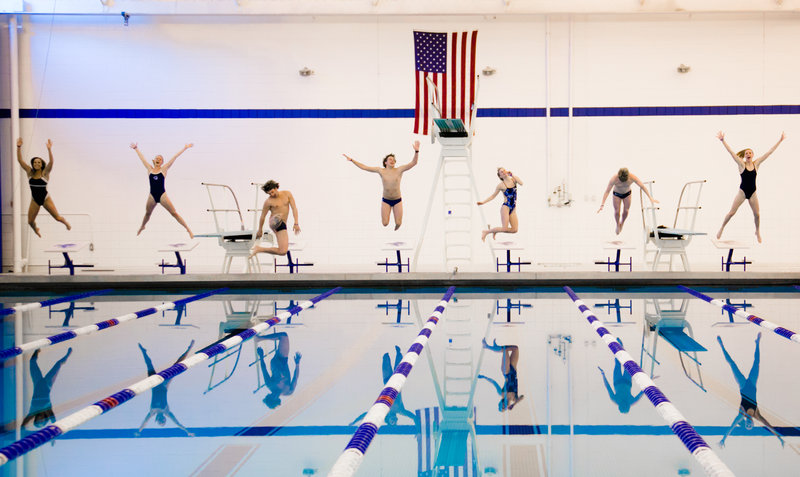By: Jeri Burtchell
Living with the challenges of MS is one thing, but if you also live in the south, surviving summertime is no small feat. Everyone’s symptoms are different, but here’s a universal MS fact: whatever the symptoms, heat will make them worse.
Having lived in northeast Florida since my 32 year-old was in diapers, I consider myself a southerner, even though technically I was born in New York.
I qualify as a southerner because:
- I don’t own a pair of boots, but I have more flip-flops than Skittles has flavors.
- I wait until the weatherman says a hurricane is at least a category four, and three blocks away before I get supplies.
- My perfume in the summertime is mosquito repellant.
- The only candles I buy contain citronella.
- I take beach photos from the passenger seat of a moving car as we’re doing a drive-by – to prove I really do live in the Sunshine State.
I head indoors before the summer solstice in June, set my air conditioner to “frostbite.” I don’t emerge in the light of day again until school starts in the fall. It’s the only way I know to endure it.
When I was in my 20’s, my favorite hobby was hiking in the Ocala National Forest armed with binoculars and a bird book. I don’t recall the heat ever bothering me.That was before MS and old age turned summertime into my mortal enemy. Now I admire the outdoors on the Nature Channel or ESPN, no longer eager to be personally immersed in it.
But sometimes you just have to brave the elements. Like when your granddaughter joins a local swim team and you go to cheer her on. Turns out you can’t do that via Skype, at least not when you’re the one who’s going to be driving her to and fro.
Her first meet was an hour’s drive out of town. We had to arrive at 7 a.m., and we figured it would last a couple of hours and we’d be out of there in no time–before the coolness of the morning was replaced by scorching heat.
Boy, was I wrong! I have lived here long enough – I should have known better. On top of that, I even wrote an article about how heat affects those with MS. It’s not like I didn’t know.
But what we thought would take only a couple of hours turned into an all day event. By the time she was done and we were headed home, I was dizzy and limp as a noodle. We had to sit in the car with the AC running full blast for quite a while before I could even drive. While we sat and waited for my brain and spinal cord to cool off, we chatted about how much fun she had.

It was at that instant I knew that any heat-related suffering I’d been through that day was worth having shared the experience with her. As I began to cool off, and my legs changed from overcooked pasta to more of an al dente, I realized I was going to have to come up with a plan.
MS might stop me from my bird-watching nature hikes, but when it tries to come between me and cheering my granddaughter on, I’m putting my numb and tingly foot down.
So I made a list of what might make the experience more bearable for me next time:
- I’m wearing shorts or a dress. Period. No matter how unflattering my legs might be, jeans are not an option.
- I’m wearing light, thin clothing and only flip-flops on my feet.
- I’m bringing a folding chair — despite all the chairs at the facility, there was never one available when I needed to sit down NOW.
- I’m getting a big floppy straw hat.
- I’m bringing a personal cooler with a rag down in the ice water that I can wipe my brow or pulse points with occasionally.
- I’m bringing lots of bottled water.
- I’ll get myself a spray bottle with a fan built on it.
It never occurred to me to sit at the edge of the kiddy pool and stick my feet in, but I just might do that, too. Of course, by the time I have a huge floppy hat, breezy muumuu covered in Hawaiian flowers, and oversized sunglasses on, my granddaughter might just be mortified at me shouting encouragements from the side of the pool.
But it’s either that or stay home, and since they don’t televise her swim meets on ESPN, I don’t have a choice now, do I? 🙂
References:
http://www.healthline.com/health-news/ms-multiple-sclerosis-patients-more-sensitive-to-heat-052113
*Jeri Burtchell was diagnosed with multiple sclerosis in 1999. She has spoken from a patient perspective at conferences around the country, addressing social media and the role it plays in designing clinical trials. Jeri is a MS blogger, patient activist, and freelance writer for the MS News Beat of Healthline.com. She lives in northeast Florida with her youngest son and elderly mother. When not writing or speaking, she enjoys crafting and photography.
















